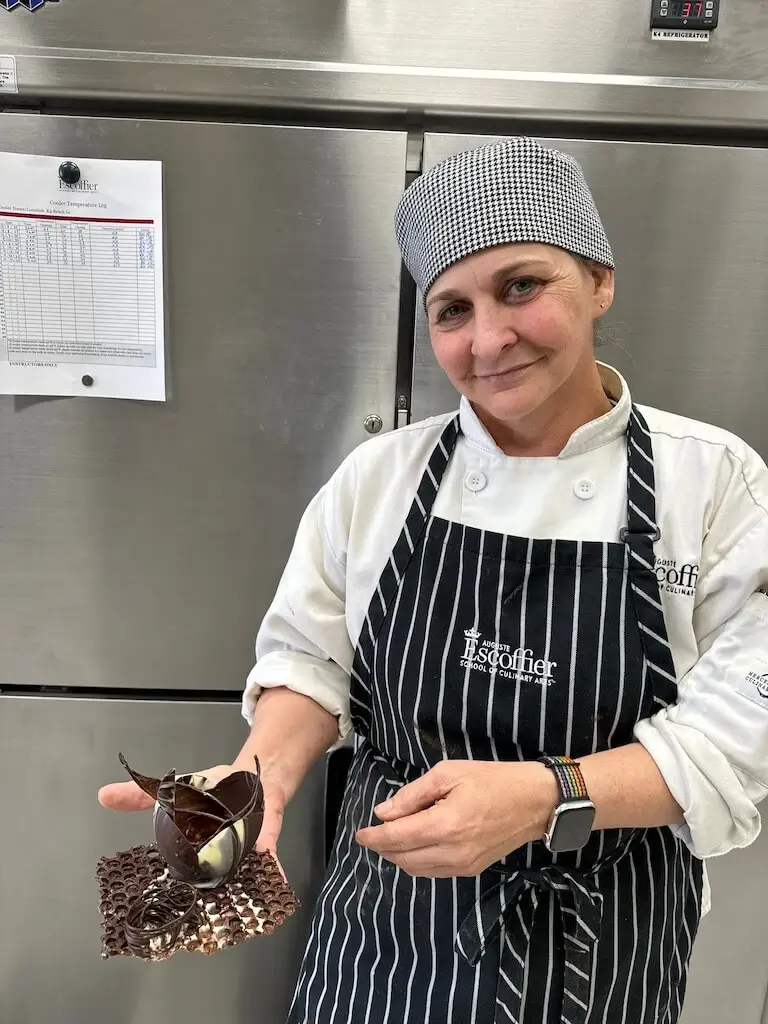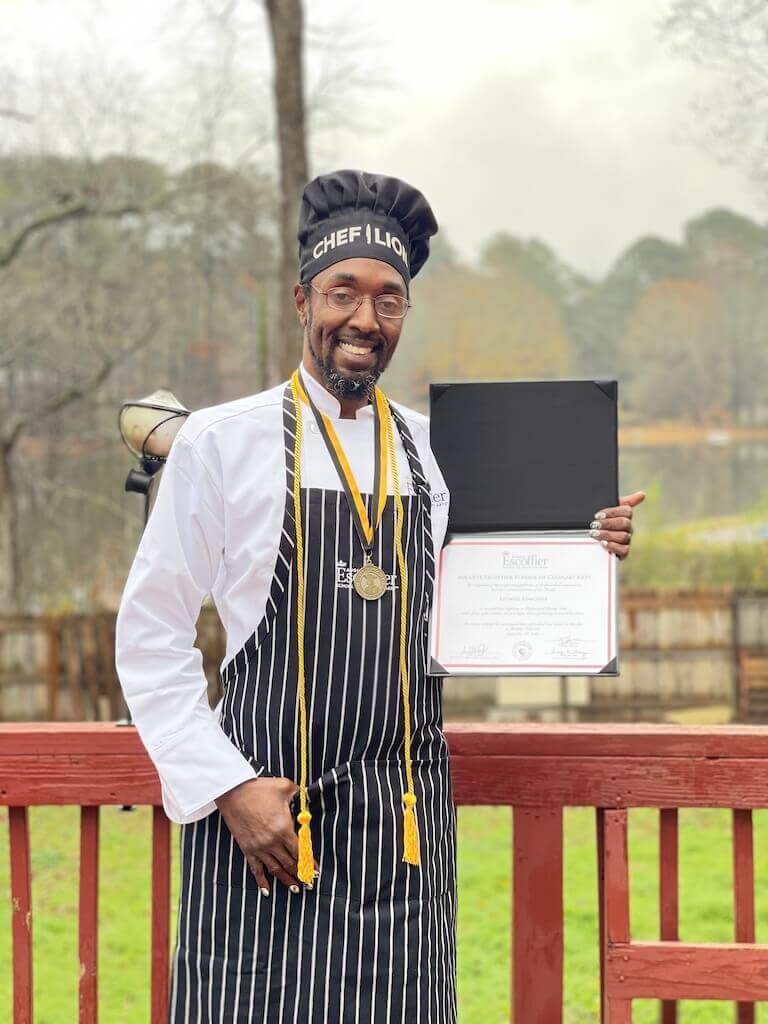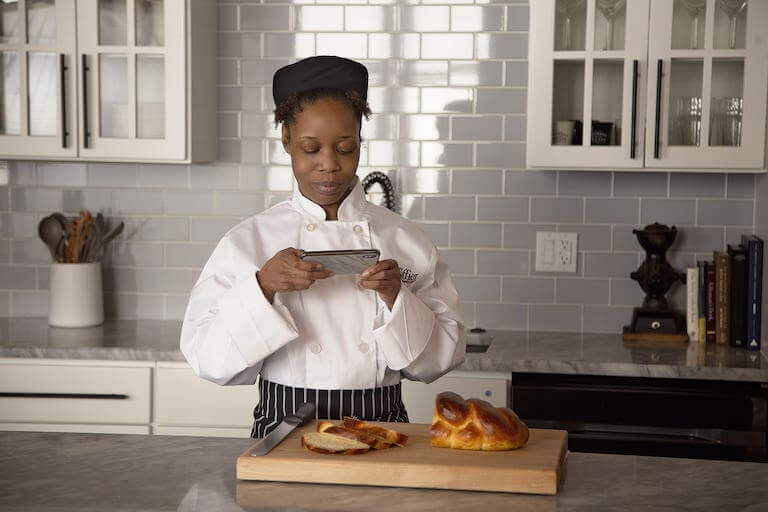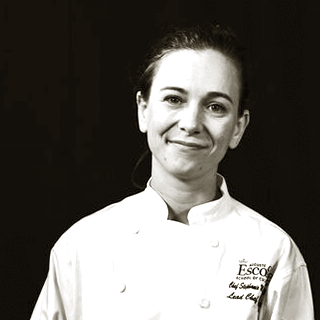Listen to This Article:
Once upon a time, a member of the workforce would get a job in their early twenties and remain in that same role until retirement. These days, most adults not only change jobs, but they also switch careers throughout their working years.
Career changes aren’t just for the young. In fact, the average American changes jobs 12 times throughout their career, proof that the “job for life” is truly a thing of the past.
So if you’re thinking about a fresh start in the culinary world, you’re far from alone—and you could be well-positioned for success. A career change to culinary arts can offer a rewarding second act. If you love to cook and are interested in starting a culinary career, culinary school for older students could provide the education and experience to jumpstart your new path. Read on to discover why it’s never too late to enroll.
1. Jump Start Your New (or Existing) Career
Maybe you’re thinking about leaving your job as a sales manager or nurse to turn your passion for food into a career. Or maybe you’re already working in a culinary field, but you’d like to take your skills to the next level so you can be better prepared to achieve your career goals.
No matter the case, culinary school may help you get a head start.
Working your way up through a kitchen can take years, but a formal culinary education may help reduce the time it takes to advance through the ranks and obtain a position like sous chef. Culinary school may provide the opportunity to build a foundation of knife skills, sanitation guidelines, and cooking techniques under the watchful eyes of experienced Chef Instructors, without the pressures that come with being thrown into a restaurant kitchen with little experience.
And there’s good reason to pursue a culinary education now. The Bureau of Labor Statistics projects an 8% growth in employment for chefs and head cooks between 2023 and 2033, a rate faster than the average for all occupations. That long-term outlook can be promising, especially when paired with more immediate growth: the National Restaurant Association anticipates 200,000 new jobs will be added in 2025 alone. It’s an encouraging sign for those considering a career change to the culinary arts later in life.
2. Your Age Is a Benefit, Not a Disadvantage
As an older student, you may worry about whether you’ll be able to keep up in class or that you’ll feel out of place among younger students. However, you may find that your age provides more benefits than you first imagined.

Luis R., Online Culinary Arts Graduate, shows his homemade eclairs.
After years of managing work, social life, family obligations, and more, you’ve likely become familiar with a crucial component of succeeding in school and the culinary field: time management. With this skillset in your pocket, you may find you’re well-prepared to handle school assignments and personal obligations.
Additionally, you’ve likely developed other soft skills like communication, organization, and the ability to work in a team. Not only can these skills help you in culinary school, but they may also help you stand out from the crowd when it comes time to find a new job.
Life experience brings a unique edge in the classroom and the kitchen. Whether it’s the time management of a busy parent, the customer service skills honed in retail, or leadership developed in a previous profession, these strengths often translate directly to culinary success.
Escoffier graduate Trenin Nubiru, for instance, brought the discipline of his 20-year military career into his new culinary path. From mentoring aspiring bakers in competitions to preparing for elite global events like the Coupe du Monde de la Pâtisserie and Bocuse d’Or, he’s channeled his prior experience into a bold and innovative future in food.
Auguste Escoffier School of Culinary Arts’ student body is composed of a variety of ages. And for many older students, enrolling in culinary school may also mark an emotional turning point: a reclaiming of purpose.
Escoffier graduate Morgan Banno, restaurant owner and Escoffier academic tutor, described the moment she received her chef coat: “I distinctly remember crying when I got my chef coat because I just felt like, ‘This is it. This is everything that I’ve been dreaming of. I can finally do something with my life other than dance, like, I think I’m on the right path.’”*
*Information may not reflect every student’s experience. Results and outcomes may be based on several factors, such as geographical region or previous experience.
As an older graduate, you may also bring a broader resume and perspective that employers don’t often find in students fresh out of high school or college. When paired with a degree or diploma, that experience can help you make a lasting impression and offer you a meaningful new direction in life and career.
3. You May Have A Wider Choice of Career Opportunities
Older foodies might love to cook, but long shifts in a hot kitchen aren’t everyone’s idea of a good time. Fortunately, culinary school for adults can open doors beyond traditional restaurant roles.
A culinary education may lead to careers in food media, education, entrepreneurship, or hospitality. You could set up a small cottage food business from your home, sell at your local farmer’s market, or teach community cooking classes. You might even start a food blog or YouTube channel to share your journey.
But that’s not all. Food photography, food styling, recipe development, journalism—all of these careers could get a boost from a culinary education.
And if you’re new to the world of entrepreneurship and business, don’t fret—Escoffier’s culinary arts programs don’t just introduce you to ingredients and cooking. The curriculum can also cover topics such as business planning, cost control, and principles of entrepreneurship.
In Escoffier’s Food Entrepreneurship Program, for example, students can explore the skills food entrepreneurs may need to prepare for careers starting or running small food businesses. You can get an opportunity to explore digital and traditional marketing concepts, business planning methods, and core culinary principles and techniques. And the online food entrepreneurship programs are designed for you to study without quitting your current job.
Culinary school may also introduce you to a wide network of alumni, some of whom have started their own culinary businesses. As a student, you can reach out to these individuals and receive advice on how to get started.
4. We’re Retiring Later Than Ever
Spending your time cooking up your favorite recipes for customers or leaving your office job to pursue a career as a recipe developer may sound great, but you may still be wondering…is it too late?
Whether you’re 45 or 60, starting a new pursuit later in life can be intimidating. But today’s workforce is changing, and so are retirement norms.
When the standard retirement age of 65 was formally established in 1935, the average life expectancy for Americans was just under 62 years. In 2025, life expectancy has risen to 79.4 years. The Social Security Administration has also raised the benefits-payable age to 67. That means many adults are pushing back their retirement, whether for financial necessity or the desire to stay active in a workplace.
What does this mean for older adults starting culinary school? You could still have 15–25 years of meaningful, fulfilling work ahead. Attending culinary school now gives you the opportunity to spend those years pursuing something that excites you.
And the benefits may extend well beyond the kitchen. According to Forbes, individuals who switch jobs in their 40s and 50s tend to become better paid, stay employed, and more engaged in their 60s. A culinary career path started later in life may lead not just to professional satisfaction but to long-term well-being.

After years in another career, now could be a great time to switch gears and start culinary school.
5. You Won’t Be On Your Own When It Comes Time to Find a Job
Even if you have an idea of what you want to do after graduation, searching for a new job (maybe in a new field) can be overwhelming and a bit intimidating. The good news is that you don’t have to tackle this search alone.
Escoffier’s Career Services department can help provide job search assistance, starting with your culinary externship. Services include resume writing help, interview prep, and career planning.
You can also have access to the Escoffier Alumni Association, where you can continue to connect with past and new graduates for advice, tips, and networking opportunities.

Lyonell E., Escoffier Online Baking & Pastry Graduate, on graduation day.
What If I Have a Job and Family?
Attending culinary school used to mean leaving your current lifestyle behind and relocating for in-person training. But today, online culinary school can allow you to obtain the same top-quality education you could in an in-person setting, all from the convenience of your own home. These programs are 100% online, with a hands-on industry externship you can complete from your choice of location, pending approval by Escoffier’s Career Services department.
You might be thinking that an online education in something as hands-on as cooking won’t provide you with the same quality of instruction as an in-person program. However, curriculum designers and Chef Instructors have designed these programs to provide the same quality of education—just in a different format. And that commitment to quality hasn’t gone unnoticed. Escoffier was recently named to Newsweek’s 2025 list of America’s Top Online Learning Providers, earning the top spot for its innovative approach to culinary education.
So, what does a typical day look like for an online culinary student? You might begin with a reading or video lesson, then move into hands-on cooking. After documenting your process with photos and notes, you’ll submit your work for feedback from your Chef Instructors.
The online culinary curriculum at Escoffier includes live and archive video class sessions, cooking demonstrations, reading assignments, including interactive lessons, cooking theory lessons, and hands-on cooking assignments. Online students also have the opportunity to tune into live video lessons as well as interact with other students through message boards and during live lessons.

Documenting her progress, Escoffier student snaps a photo of her freshly baked bread as part of her online coursework.
And if you find yourself struggling with the whole school environment after some time away, you can turn to your Success Coach to help you troubleshoot any issues and come up with a solution.
What About Paying For School?
No matter your age, deciding to attend culinary school can be a big step. Along with thinking about how school will impact your lifestyle, you may also be wondering about the associated costs. An online Diploma in Culinary Arts and Operations at Escoffier costs $23,272 at the time of publication.
However, you won’t necessarily have to pay this full amount. Financial aid is available for those who apply and qualify, and numerous culinary scholarships are also available to those who apply and qualify.
It’s Never Too Late to Chase Your Dreams
So often, we think, “If I start now, I’ll be X-years-old when I finish.” But here’s the truth: you’ll be that age either way. Why not be that age with new skills, a professional credential, and the chance to pursue what you love?
Whether you’re looking to change careers entirely or grow within your current role, culinary school for older students can offer structure, support, and purpose. Escoffier’s online programs include Culinary Arts, Baking and Pastry Arts, Hospitality & Restaurant Operations Management, Holistic Nutrition and Wellness, Food Entrepreneurship, and more, with each offering flexibility.
So if you’re ready to take the leap, we’re ready to help you land on your feet. Apply now to start your second act today.
INTERESTED IN MORE? HERE ARE MORE ARTICLES ABOUT CULINARY EDUCATION THAT YOU MAY LIKE:
- Culinary School Pros and Cons: How to Decide If It’s for You
- Is a Culinary Diploma or Degree Worth It?
- How You Can Get Into Culinary School
This article was originally published on November 2, 2020, and has since been updated.
*Information may not reflect every student’s experience. Results and outcomes may be based on several factors, such as geographical region or previous experience.


